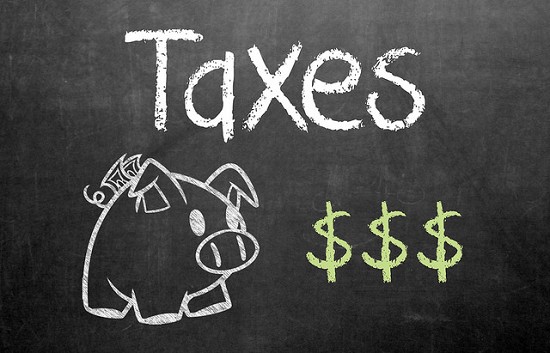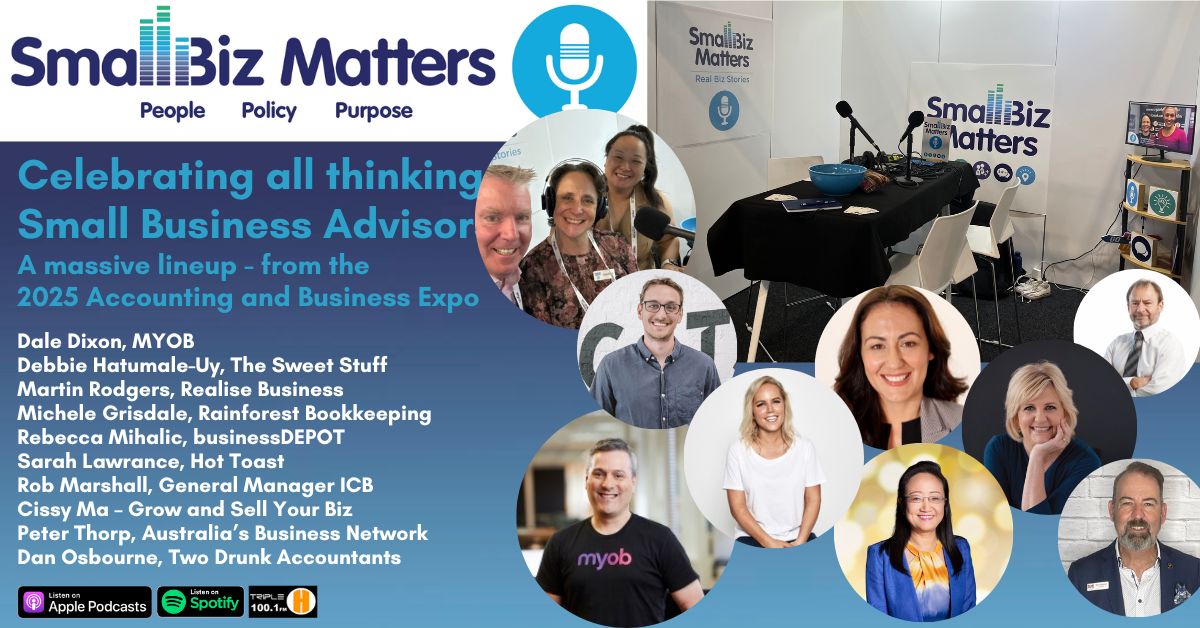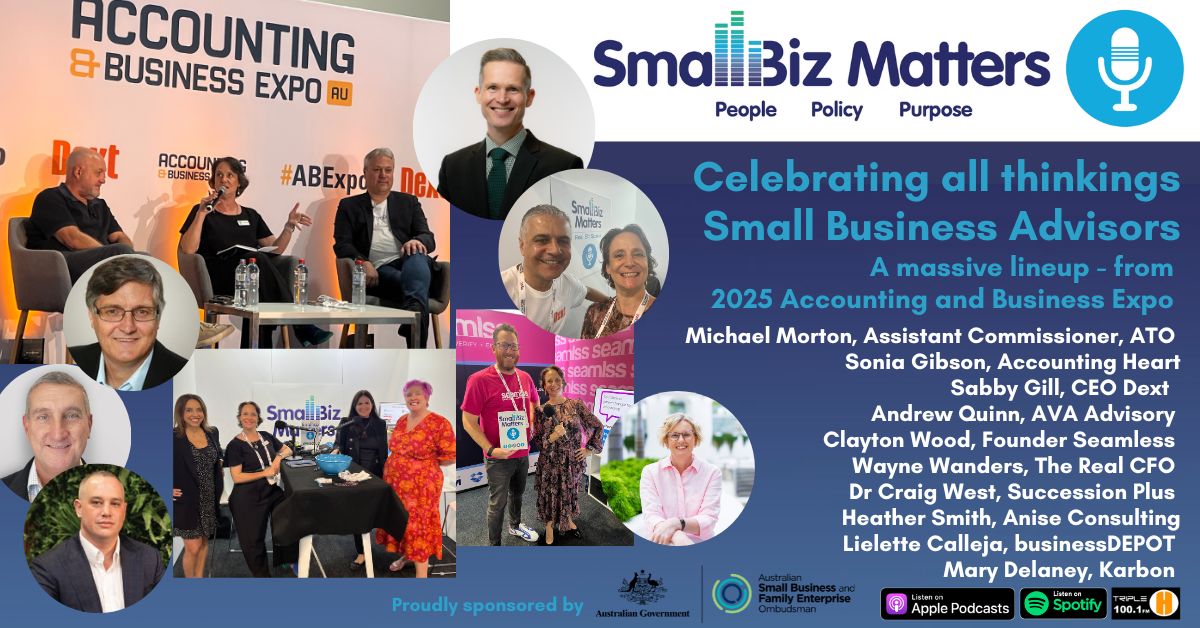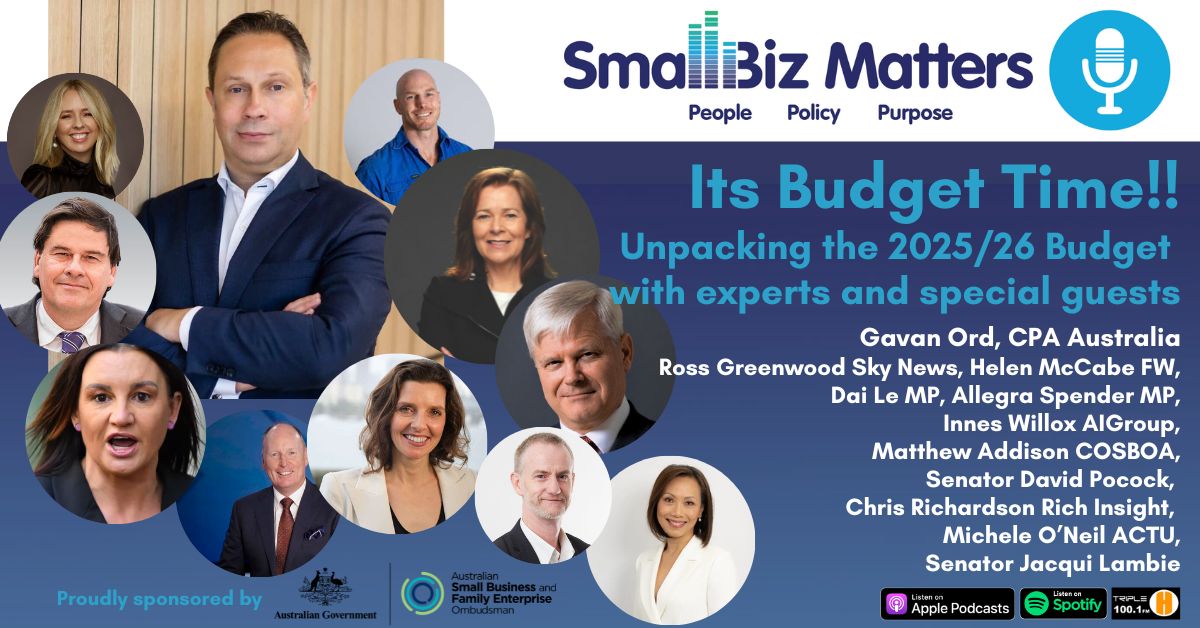GST & Bookkeeping Tips - 18/4/2017
| Tuesday April 18PODCAST COMING SOON...
As small businesses we all know the importance of cash flow and controlling your finances, and we often struggle with this. Larger companies have finance departments, accountants and payroll experts on their staff and along with all the red tape small businesses have to wade through, they often have to do it all themselves. There are consultants (bookkeepers) whom you can turn to but like all things in business you may not be in a position to outsource. Yet.
The most expensive and inefficient way you can do your books is by shoving everything into a shoebox and handing it to your accountant with sheepish smile at the end of the financial year and explaining you didn’t have time to sort it out….. Your accountant is going to spend more time doing data entry rather than what you want them to be doing which is analysing your numbers and helping you with advice as to which direction your business is head and how to cut costs….
Today we’re going to go through some bookkeeping tips to help you get the day to day bookkeeping under control. You can do small things each day to cut your costs if you do engage with a bookkeeper or use some of these strategies it will cut those costs down.
Also, the ATO will actually penalise you for not keeping proper records: Their website says: You must keep accurate and complete records of all your assessable income and deductions you claim. If you make false or misleading statements, we may:
- determine your income, based on industry benchmarks and other information, and issue an amended assessment
- apply penalties
- commence prosecution.
The ATO also has some great tips in its Your Small Business section (we’re going to be talking in more detail about this later in the show) It states
your records must:
- explain all transactions
- be in writing
- be in English
- be kept for five years (although some records need to be kept longer).
Here are some tips:
- What is a tax invoice?
o Must have Tax invoice written on it
o Must clearly show GST or clearly show if not GST is included
o Description of goods or services
- It's a good idea to check if your contractor or supplier SHOULD be charging
- Statements vs receipts
- Get your receipts into the cloud. Whether it's a monthly paid online software package or simply taking pictures and popping them into a dropbox folder its important to reduce the paper in your office and in your wallet.
- However if you’re going to be in the cloud and NOT using software make sure you set up a filename system for the receipts so it will be easy to find them in future. Such as SupplierNameDate all in one word. Software apps like Receiptbank and ShoeBox will use photo recognition software to recognise and then save lots of details like invoice number, supplier name, date, amount, GST amount – they really are very advanced with this ability now.
- Make sure when filing your receipts or bills they are in a different folder to your other documents relating to that supplier. For example, don’t have a folder called Lawyers and have all the agreements, contracts etc in the same place as their invoices. A good filing structure for financial receipts should be dated. A whole year folder divided into months is a logical filing structure. That way in 5 years time when you no longer have to keep these financial records you can just ditch one folder instead of searching for all the receipts within those supplier folders
- Label receipts if its not clear what you purchased from the description
- If you do a lot of client entertainment (schmoozing) such as coffee meetings, or dinners then I would highly recommend checking with your accountant as to what are allowable for your business. It's a god idea to keep track of who you were meeting with by writing their name and company name on the top of the receipt. Also, make sure you get a register tax invoice – not just an eftpos receipt – as this is not a tax receipt. The reason is that it doesn’t list all the items involved in the entertainment and the ATO in particular is interested in the alcohol component.
- Separate your business and personal transactions. The best way to do this is to have a completely separate bank account (and credit card account although beware of the fees) to track your business related income and expenses. If you do purchase something from your personal funds or with cash clearly write it on the receipt so you or your bookkeeper are not trying to hunt for that transaction in your business bank account only to find you put it on your personal credit card. It doesn’t mean you are unable to claim the deduction, it just means it is harder to track because its not in your business account.
- Accounting software
o Helps because it's a more automated system
o Paid versions (there are cheaper options)
o Free options
o Excel based – good until you have to add Payroll to you books
Keep good records and ask your accountant if you’re unsure on all of these topics.





